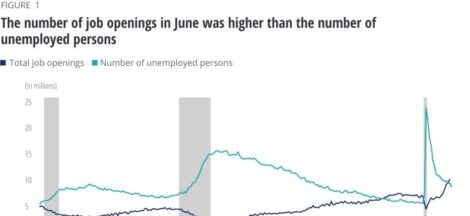By Anjan Roy
This month ten years ago was one of the defining moments of modern day capitalism – In September 2008 the storied investment bank of United States Lehman Brothers went under. The liquidation of Lehman Brothers, virtually the icon of modern day American capitalism, rang the bell for the global financial melt-down.
In a roll and as a domino effect, the biggest names in financial capitalism were then looking fragile. So much so, that leaving aside its century old philosophy of arms length relation between private financial players and the government, the US Treasury began investing in the capital stock of banks and financial intermediaries of what was then coined as “too big to fail”. By the turn of the month, almost all of these financial big dads, including insurance companies like AIG, had become US government-owned.
The US government had pumped in around $800 billion in the capital stocks of these banks and insurance and credit guarantee companies.
In between the stock markets were hit, as the stocks of the large banks and financial companies plummeted. This further complicated matters and the contagion started spreading across the “pond” to Europe. European investment managers had invested in these securitised financial investment instruments which these US banks and investment companies had sold in the global markets. They came to be known “toxic” assets. Once these were not worth the papers they were printed, their holders were staring at loss of money and facing financial liquidation, depending on the money they had put in these instruments.
Indian banks and financial entities had then escaped without much hit. This was largely because the Indian players were not big investors in the securitised debts and other investment instruments which were floating around in the global financial markets. They were thus insulated from the global hurricane mainly because of their insularity.
But India came to be affected by two routes: first as the global markets were tanking, foreign institutional investors were selling their investments in Indian secondary markets and were withdrawing from India. Secondly, as these FII were withdrawing and cashing out, the rupee was affected and exchange rate depreciated.
While, these two developments had hurt Indian financial sector, the core of banking operations were intact, unlike in many other countries. None of the Indian banks had faced the kind of financial strains and stresses that were seen elsewhere, even nearer home.
Ten years down the line, Indian financial sector does not look quite as much robust. This is because the core of the global financial melt-down was around bad and unsustainable loans by banks – known at the time as “sub-prime” loans. It is this disease that has today affected the Indian banking system deeply. Unless the bad debts are taken care of, and in time, there is no doubt the Indian banking and financial sector would be overcome with a problem of unsustainability.
Bad debts, euphemistically called non-performing assets, are not new. Banks would have some bad debts at any point of time, no denying. But when their overall proportion surges beyond limits, the weight of non-recoverable loans would bring down the entire structure. Ten years back, the bad debts portfolio accounted for much less than today. In absolute volumes, these have surged. Over the last ten years, the stock of bad debts of Indian banks has reportedly risen from around Rs2.5 lakh crore to over Rs12 lakh crore at present.
Coming shortly after the financial melt-down, Raghuram Rajan, had come to take up the mantle of RBI governor. Rajan had a formidable reputation. He was said to be the lone voice warning about a possible financial crisis when the American economy was going through its gung-ho days of equity market rise and feeling of being rich because of assets price inflation, including the huge spike in house prices. In a roomful of experts and economists at a Jackson Hole conference of global central bankers, Rajan had pointed out his dissenting and radically divergent views of a possible financial collapse.
No wonder that as RBI governor, almost the first thing he did was to look into the incidence of bad debts in the loan portfolios of India banks. Although NPAs were there, these were not recognised upfront and were discussed in hushed tones in the inner circles. There was the sacred principle of banking secrecy which meant that baks could not divulge the names of defaulters. What a system that you go on taking bank loans, jump these and keep insisting that your name cannot be divulged.
Rajan asked banks to come up-front with the numbers about their bad debts. These could no longer be swept under the carpet. Two things happened. This stopped or worked as a brake on ever-greening of bad loan accounts; and secondly, banks were also under pressure to set their bad loans right and not just try to hide these by ever-greening. Because, ever greening, rather than solving the problem, compounds it further. Along with the awareness about NPAs, soon the banking secrecy clause was thrown out of the window. Today, we know the names of all major bank loan defaulters.
This creates a social pressure on loan defaulters and those who deliberately try to defraud banks. Previously, bankers would argue that divulging the defaulters names would destroy their creditworthiness in the market and make recovery difficult. Following the disclosure of names, if loan recovery is difficult, the creditworthiness has been destroyed and these deliberate defaulters won’t have access to more and more funds with impunity.
The lesson of the past ten years is crucial. Bad loans are at the heart of financial crises, apart from sheer macro-economic changes which can make certain activities unviable and make such loans bad. Secondly, banks much cultivate their professional abilities to judge a project properly and evaluate their viability. Thirdly, do not protect those who jump bank loans, on whatever pretext. It is better to see problem in the face than look sideways. (IPA Service)
The picture is from the Internet.
The post Ten Years Since Collapse Of Lehman Brothers appeared first on Newspack by India Press Agency.


